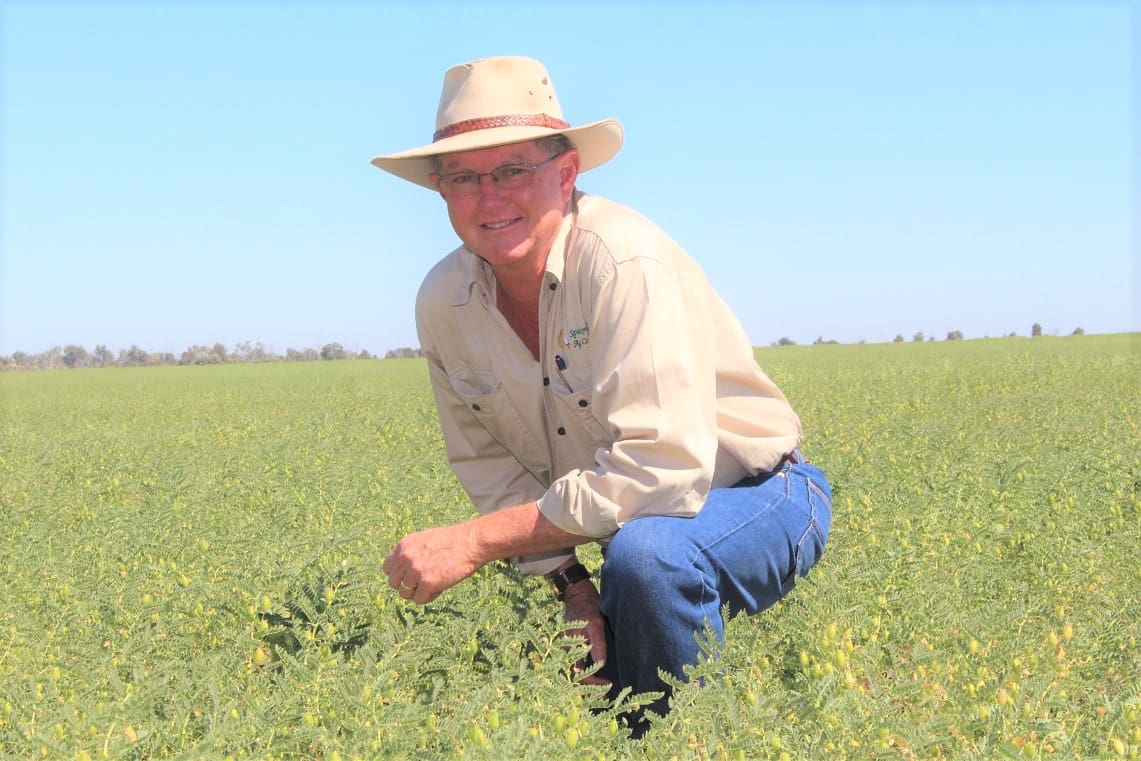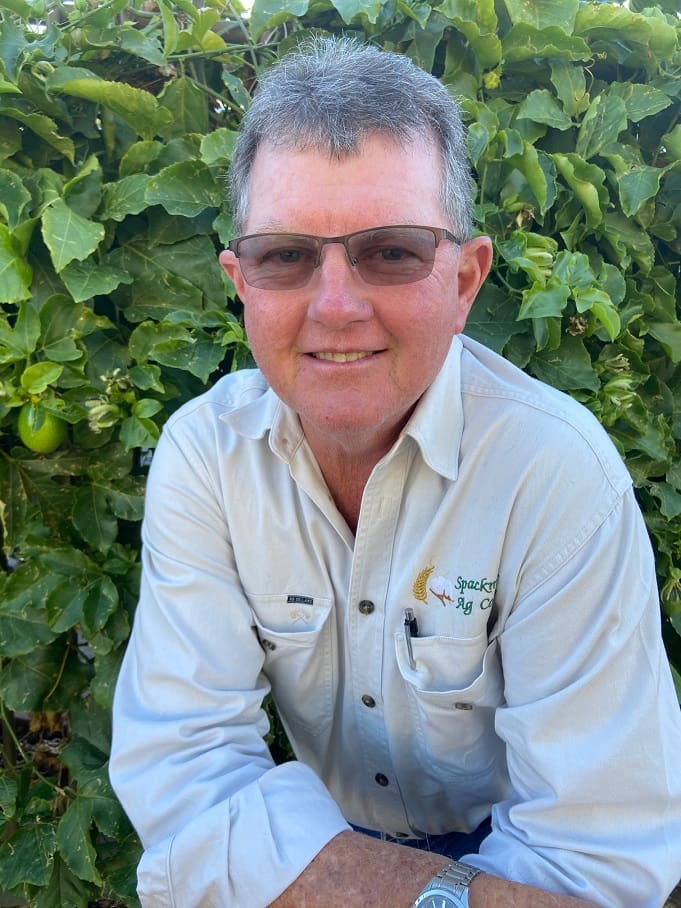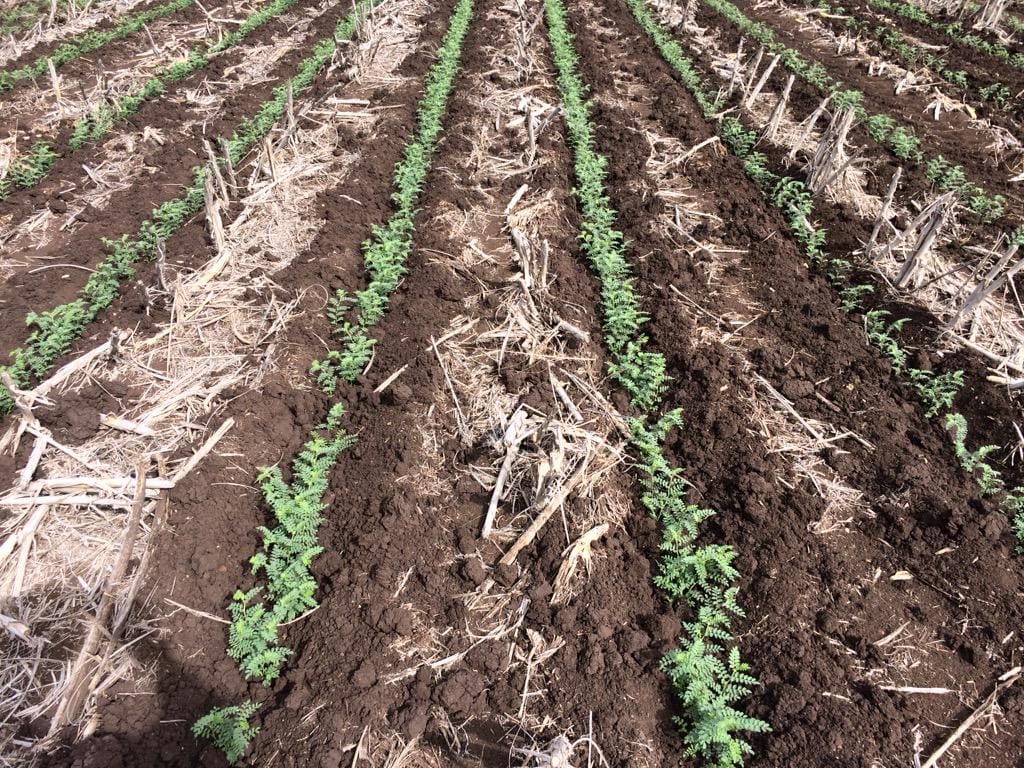
Agricultural consultant, Graham Spackman, retired this week after playing a leading role over the past few decades helping reshape the farming systems of Central Queensland.
FOR more than four decades, Graham Spackman has played a leading role in reshaping the farming systems of Central Queensland (CQ), adapting them to the variable climate and helping transform the area into one of Australia’s most reliable, productive agricultural regions.
The widely-known agronomist and consultant, whose reputation extends beyond CQ into the broad Australian cropping community, this week stepped down from full-time consulting and eased into retirement.
However, he still plans to remain actively involved in the Australian farming scene through maintaining links with many of his clients and continuing his role on the northern panel of the Grains Research and Development Corporation (GRDC).
Originally from a family farm at West Wyalong in south-central New South Wales, Mr Spackman went on to complete a Bachelor of Rural Science at the University of New England in Armidale, northern NSW.
His first significant job was in Queensland with what was then the Queensland Department of Primary Industries (DPI) based on the Atherton Tableland where he worked for nearly two years on dairy pastures and summer crops.
“I told them I always wanted to finish up somewhere in the grain industry. A position came up in Emerald and they sent me here in 1979. I’ve been here ever since,” he said.
During his 10 years with the DPI in Emerald he was involved in extension work throughout the Central Highlands, mainly with summer and winter cropping. He also spent 18 months away studying for a Masters degree in Nebraska in the United States in the mid-1980s.
In 1989 he decided to strike out on his own, establishing an agricultural consulting business at Emerald which was to see him continue to build a reputation for agronomic expertise and leadership in the farming community.
Thirty-one years later after what he describes as “a terrific ride”, Mr Spackman has moved into retirement, leaving a legacy that will continue to benefit the CQ farming sector for generations to come.
Farming system evolution
Mr Spackman said farming in Australia had changed dramatically throughout the time of his career, and CQ had been a part of that transition.
“Central Queensland has always been regarded as having a variable climate. The farming system that has now developed has allowed us to cope a lot better with that variability,” he said.
When he arrived in CQ in the late 1970s, the region’s growers were essentially running conventional farming regimes.
Then there was a transition from one-way disc ploughs and offsets to blade ploughs and chisel ploughs with sweeps to keep more stubble on the surface.
Then, through the mid-1980s zero till appeared on the horizon.

Graham Spackman says the farming system that has been developed and adopted in CQ has allowed farmers to cope better with the region’s climate variability.
“Myself and other DPI and commercial advisers were involved in a lot of the early research and extension work developing zero till. That occurred through the 1980s and into the 1990s,” he said.
“Then, during the 1990s controlled traffic farming (CTF) started to be adopted which really facilitated zero till farming a lot better.
“We were very fortunate that the early research on CTF in Australia was based in the Central Highlands. Some of my clients were the early adopters of controlled traffic, and CTF is now widely adopted nationally and internationally.”
Mr Spackman said all those changes led to the system of today where producers were managing rainfall a lot better.
“With all the extra stubble cover and crop rotations, it has really been a game changer as far as the reliability of farming in a fairly marginal environment goes,” he said.
“CQ is different to a lot of other areas. We can plant crops nearly 12 months of the year. There are periods when it’s a little bit more risky, but if there is a decent opportunity we tend to take advantage of it.
“To a large extent, we practice opportunity cropping where, if there is a sensible opportunity, we like to take advantage of it to grow crops. We try to rotate crops between cereals, pulses and oilseeds to maintain stubble cover and help control weeds.
“Essentially our program is driven by rainfall and planting opportunities.”
Chickpea game changer
Mr Spackman said another development that really revolutionised farming in CQ was the introduction of chickpeas.
“Chickpeas are extremely well adapted to the CQ environment and soils. They have now become the most profitable crop we grow and a very large part of the rotation,” he said.
“They have fitted very well into our system. They enable you to use different groups of herbicides, they yield well and they are fairly reliable.
“We can sow them deep into moisture so that if we get late summer rains that are too late for summer crop we can sow chickpeas six to 10 weeks after rainfall and get them established. They have been a game changer for farming in this part of the world.”

The introduction of chickpeas has been a game changer in Central Queensland farming systems.
Ongoing challenges
Mr Spackman said while the region’s farmers had adopted many new strategies to cope with the variable rainfall and climate, challenges remained.
“We have always had issues with soil fertility. I think a lot of the recent research that has been done on nitrogen fertiliser use and deep banding of phosphorus, and in some cases potassium, has seen a terrific yield improvement on soils that are deficient in those nutrients,” he said.
“We really would like a more reliable summer legume. I think over the next five to 10 years we will see a lot of research done on crops like pigeon peas to try to develop them into a more reliable legume for our summers.
“The old chestnut is weeds. We have some low levels of resistance lurking away in some species that growers are going to have to learn to manage.
“Some of the tougher weeds have developed resistance, partly because of zero tillage. There have been a lot of benefits from zero till farming, but there are some weeds that have become more troublesome in that sort of system. Growers are grappling with weeds like feathertop Rhodes grass, sowthistle and sweet summer grass.”
Bright farming future
Mr Spackman sees a bright future for young people involved in farming and the support industries such as consulting and research.
“I have been very fortunate in the time I’ve been here. Because you tend to work with farming families, you see the families and businesses progressing through the generations. There are a number of families that I have been consulting to where we are now working with the third generation, which is pretty cool,” he said.
“There are a lot of young people in the industry. It’s very challenging and young people have to have their wits about them as far as being sensible about evaluating and adopting new technology and sticking to tried and proven practices.”
Mr Spackman said it was the people side of living and working in the rural community that had been one of the most satisfying aspects of his career.
“It has been terrific to work with all the people I have over the years. I have had a terrific bunch of clients. I still have quite a few clients that I first started out with which is gratifying,” he said.
“There have been a lot of very capable researchers and agribusiness people I’ve worked with along the way.
“I’ve had a lot of good staff. There are a lot of young ‘agros’ out there who worked with our business in the early parts of their careers. It’s terrific to see those people progressing and becoming very competent in their fields. And I’m very confident that my consulting business is now in very good hands.”
Grain Central: Get our free daily cropping news straight to your inbox – Click here

HAVE YOUR SAY